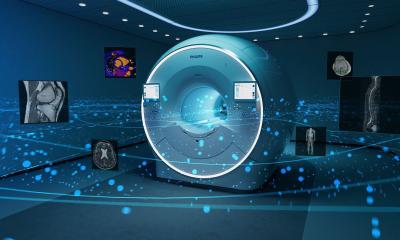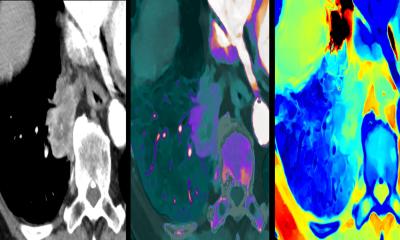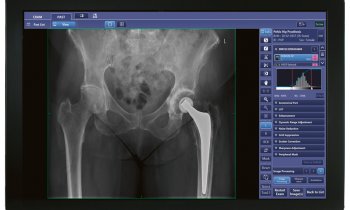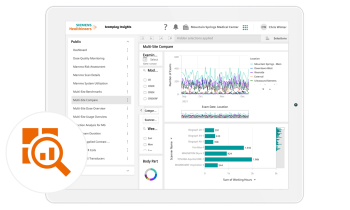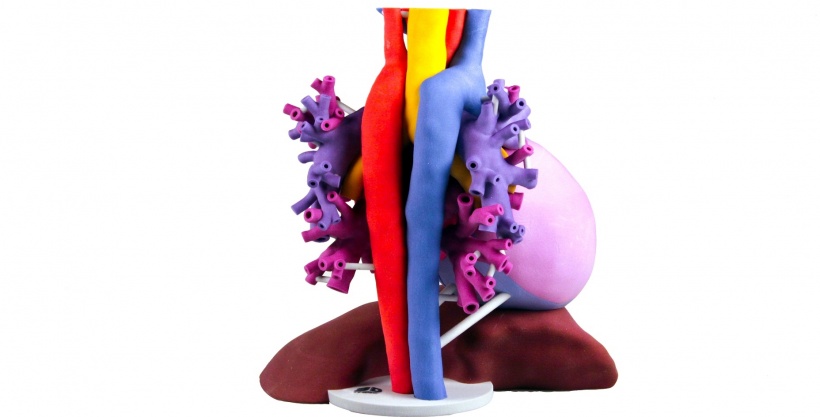
News • Cooperation
Philips teams with 3D printing industry leaders 3D Systems and Stratasys
3D printing interfacing with Philips IntelliSpace Portal 10 brings innovation into radiology and patient care
Royal Philips, a global leader in health technology, announced agreements with 3D Systems and Stratasys, two global leaders in the 3D printing industry, to help progress patient care and improve the clinician experience. Advanced 3D modeling provides radiologists with additional views to help strengthen anatomical knowledge which could enhance clinical impact in reviewing complex, multi-disciplinary cases. IntelliSpace Portal 10 is the first advanced visualization platform to feature an embedded 3D modeling application for creating and exporting 3D models intuitively into the clinical workflow. A suite of clinician focused rendering and editing tools from across IntelliSpace Portal 10 applications helps assure the model reflects the true patient anatomy.
Through interfacing with IntelliSpace Portal 10, Philips customers will now have a virtually seamless connection to 3D Systems and Stratasys solutions to expedite 3D printing to create models to help radiologists understand patient anatomy that is difficult to visualize and deliver personalized medicine in the most unique, complex cases. Users can create the model in IntelliSpace Portal 10, save the data and easily transfer the data to the 3D vendors’ solutions without leaving the clinical environment.
“Enhancing how we visualize anatomy and diseases, like cancerous tumors, can profoundly affect the level of personalized care we can deliver to patients,” said Yair Briman, Business Leader Healthcare Informatics at Philips. “By improving 3D printing capabilities by working with 3D Systems and Stratasys, we aim to empower providers to improve care for complex cases and increase diagnostic confidence.”
Partnering to improve care globally
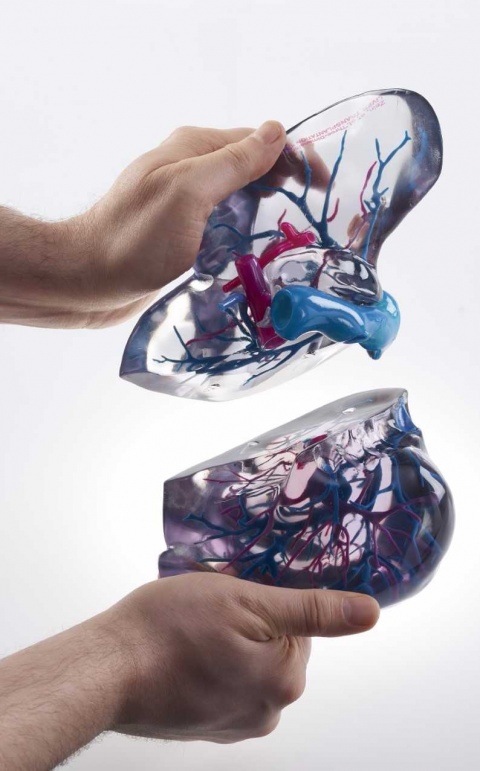
3D Systems is a leader of precision healthcare capabilities, including virtual reality simulators, 3D printed anatomical models, virtual surgical planning, patient-specific surgical guides, instrumentation and implants. Their solutions help to speed care and treatment and reduce costs. The collaboration with Philips will offer a comprehensive clinical workflow for radiologists.
“Through our agreement with Philips, 3D Systems is furthering its commitment to advancing clinical performance and optimizing procedural outcomes through education and collaboration,” said Kevin McAlea, Executive Vice President, Healthcare and Metals Business Units, 3D Systems. “We are happy to play a role in providing a comprehensive solution that will help clinicians and hospitals meet the unique challenges they are facing in today’s value-based care environment through the use of 3D modeling tools.”
Stratasys is a global leader in applied additive technology solutions, fully committed to purposeful innovation across the healthcare marketplace – from 3D printed surgical planning models and medical device prototyping to advanced education and training. Stratasys’ unique PolyJet-based full-color, multi-material 3D printing solutions drive unmatched realism – enabling medical professionals to innovate and evolve like never before. Interfacing with Philips, customers can now rapidly design, order, and produce 3D printed anatomical structures on-demand from Stratasys Direct Manufacturing.
“Stratasys is committed to opening new doors for practitioners to prepare for procedures by opening data communication from the hospital-based imaging systems to the 3D printing products and services used to provide patient-specific modeling. Our alignment with a market leader like Philips takes this capability one step further,” said Scott Rader, GM of Healthcare Solutions at Stratasys. “Philips customers can now add the impact and value of 3D printing to their highly effective IntelliSpace environments to accelerate efficiencies and advance innovation.”
Join Philips at RSNA 2017
As interest in 3D printing continues to grow, its role in radiology is still being defined. Hear directly from clinicians as they employ new technologies for 3D integrated workflows to print models leveraging 3D segmentations, education and training at the Philips hosted 3D Printing Symposium on November 28th from 9 – 10:30 a.m. CT at S101AB, McCormick Place, Chicago. The symposium will feature speakers from Phoenix Children’s Hospital, Ichilov Hospital in Tel-Aviv, and Philips. For more information and to RSVP for the event, visit www.philips.com/rsna.
To see these integrated 3D modeling workflows demonstrated live, visit Philips booth (6735), 3D Systems booth (1717) and Stratasys booth (7565) at the Radiological Society of North America (RSNA) Annual Meeting, taking place Nov. 26 - Dec. 1, in Chicago, Ill. For more information on Philips full suite of integrated imaging systems, devices, informatics and services at #RSNA17, and for live updates from the event, follow @PhilipsLiveFrom or visit www.philips.com/rsna.
Source: Philips
28.11.2017



